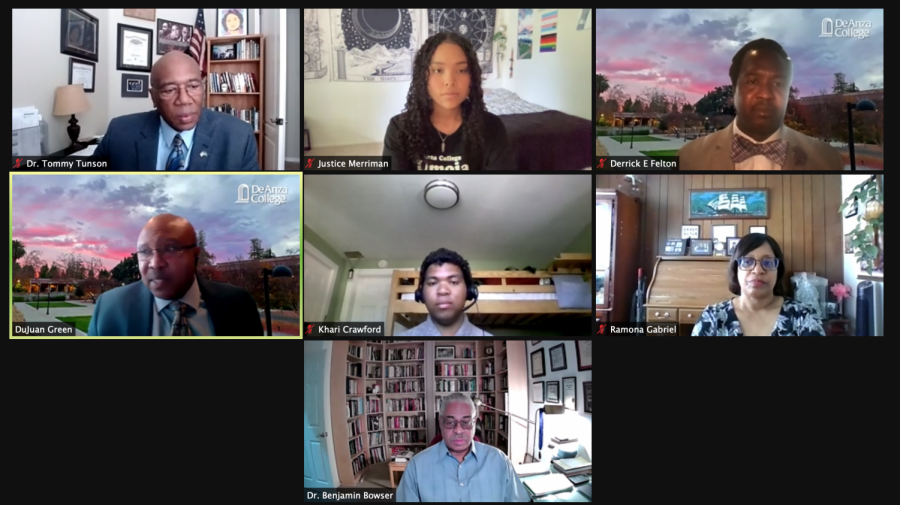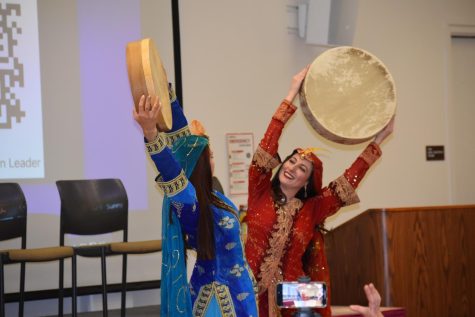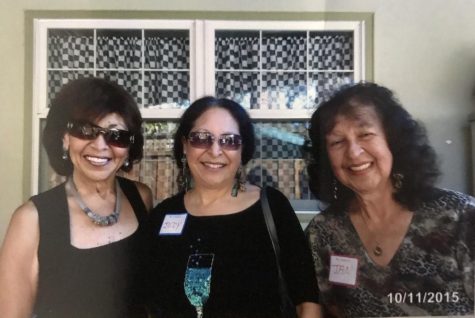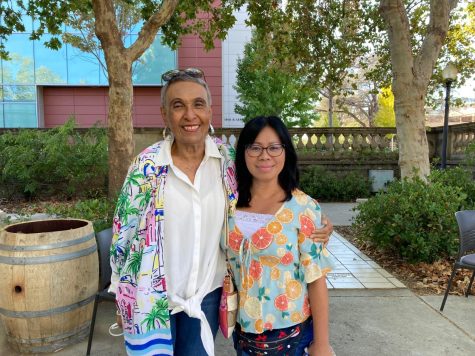Panel address the “talk” and keeps it real about how BIPOC community can best interact with law enforcement to ensure safety
Panel at “Interacting with Law Enforcement: Keeping It Real”
A five-person all-Black panel of De Anza College faculty and former police officers fielded questions about de-escalating interactions between law enforcement and communities of color in the speaker event “Interacting with Law Enforcement: Keeping it Real” on May 20.
Derrick Felton, a panelist and De Anza counselor in Psychological Services, said the panel was inspired by “the talk.”
“The talk is the conversation that Black parents need to have with their children about how to safely interact with cops,” Felton said. “Surprisingly, many of my students had never heard of it.”
Benjamin Bowser, another panelist and sociology professor at CSU East Bay, said the talk is a tradition in the Black community that dates back to slavery and the reason Black people have survived in a racist system.
“What we’re doing today is continuing the talk because it needs to be continued,” Bowser said. “The talk is not a one-time thing. It is a continuous conversation in communities where we’re constantly coaching each other, advising and counseling through all phases of our lives.”
Palo Alto police officer Dujuan Green said officers want civilian interactions to be safe as well.
“Let’s keep it real… we all want to go home safely,” Green said. “We want the encounter to happen in a safe manner, as safe as possible, for both you and the police officer.”
Justice Merriman, 20, sociology major and panel moderator, said the presence of Black law enforcement made the conversation particularly interesting.
“Instead of talking about interacting with police or law enforcement just on the civilian side, we got to hear about it from their perspective as well,” Merriman said. “It was really productive.”
Khari Crawford, 20, social and behavioral sciences major and the other moderator, said he felt honored to moderate the panel and that it helps address a growing hypocrisy in discussions of racist policing.
“What I see is a catch-22 that we have in different places in our society,” Crawford said. “We know it’s important to tell people there’s a certain way to behave, but we don’t often teach them how to. I think this helped with that.”
Information about additional events hosted by BFSA can be found here.








